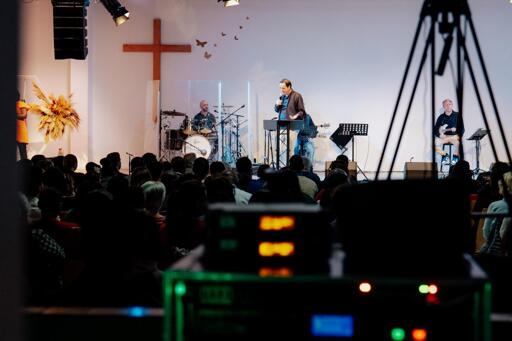- cross-posted to:
- world@lemmy.world
- cross-posted to:
- world@lemmy.world
Which flavor, though? There’s a huge difference between German-style lutheranism and the many regressive denominations from the US.
lutheranism
That’s usually referred to as protestantism, not evangelicalism.
Evangelical an Lutheran are both protestant movements.
Yes, technically. But when talking about how terms are used, protestants are the more progressive denominations while evangelicals are singled out as their own thing. This gets clearer when using the german terms: protestant is protestantisch that is used interchangible with evangelisch, but evangelical is it’s own thing as evangelikal.
Evsngelicals are not part of what is generally known as the more progressive protestant tradition, although it is a protestant denomination.
Catholicism and Lutheranism are both Christian religions. It doesn’t make them equivalent.
Evangelical religions are more fundamentalist with belief in things like talking with tongues and absolutes of good and evil.
US-Evangelical. Even evangelical dominations can vary a ton. It’s just a term for trying to expand/spread the faith. In the netherlands evangelical churches are often the most progressive.
No, it’s also evangelicals in Germany. They’re called “Evangelikale” in german, while the general term that includes evangelicals as well as (the generally more progressive) lutherans/protestants is “evangelisch”.
I just said that Protestantism includes both Lutheran and Evangelical. Speaking of Protestants when meaning Lutherans is not clear if other groups are also present:
lutheranism
That’s usually referred to as protestantism, not evangelicalism.
It’s a french newspaper and the full article is only available to subscribers, I don’t like to assume.
Members of evangelical churches, a branch of Protestantism, are increasing.
…
mirrors the rise of evangelical Christianity across France, where Protestantism has traditionally been dominated by older currents rooted in the Lutheran Reformation.
…
Sébastien Fath, a historian and sociologist of religions at France’s National Center for Scientific Research and a recognized expert on the subject, said that today, “at least 58% of Protestants are evangelicals, a figure that may even be underestimated.” According to him, there are currently between 1.1 million and 1.2 million evangelicals in France, spread across some 3,000 places of worship nationwide – including in medium-sized towns where they were previously absent.Damn, that sucks. Thanks for digging it up.
And even the term evangelical means very different things. In the netherlands the ‘Evangelische kerken’ are some of the most progressive.
In Germany, we also use evangelisch for e.g. Lutheran and Calvinist, but keep the English term evangelikal when speaking about those churches mentioned in the article.
This might also be the case in the Netherlands to be fair. Sorry for the confusion then.
I just wanted to emphasize that both terms are surprisingly similar but mean two different things.
The article shows me just a couple of paragraphs and not much info.
My online search reveals similar article titles over the years. Like this link 1 and link 2.
The latter states that ; " According to 2023 statistics from the National Council of Evangelicals of France (CNEF), the number of practising Evangelicals in the country has risen from 650,000 in 2017 to 745,000 this year.
Still, I don’t have much context.
Where’s laïcité when you need it?
How is this in conflict with “laïcité”?
Evangelicals are some of the most politically active and regressive communities out there.
Justifying legally harassing brown people, what else did you expect it to do?





